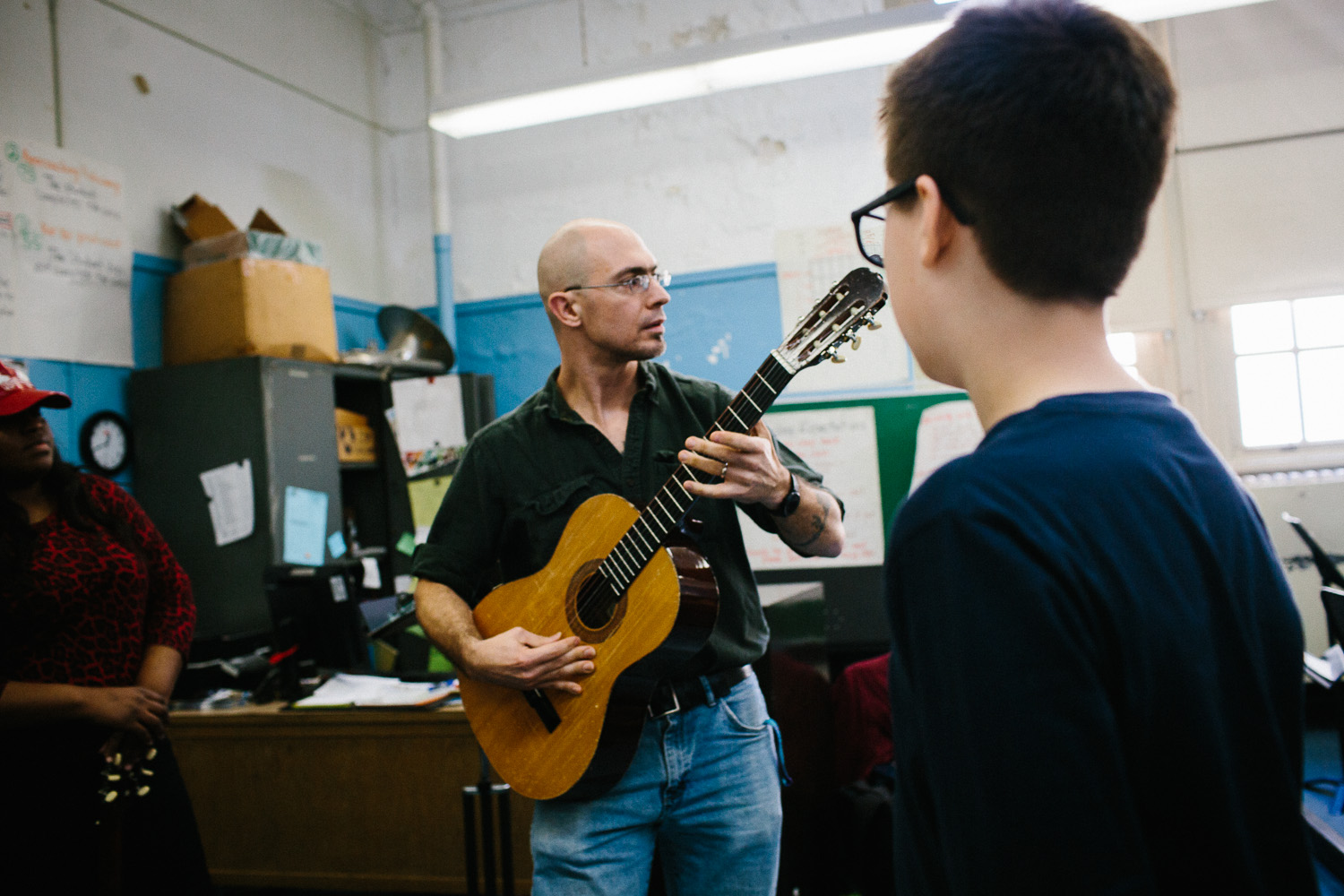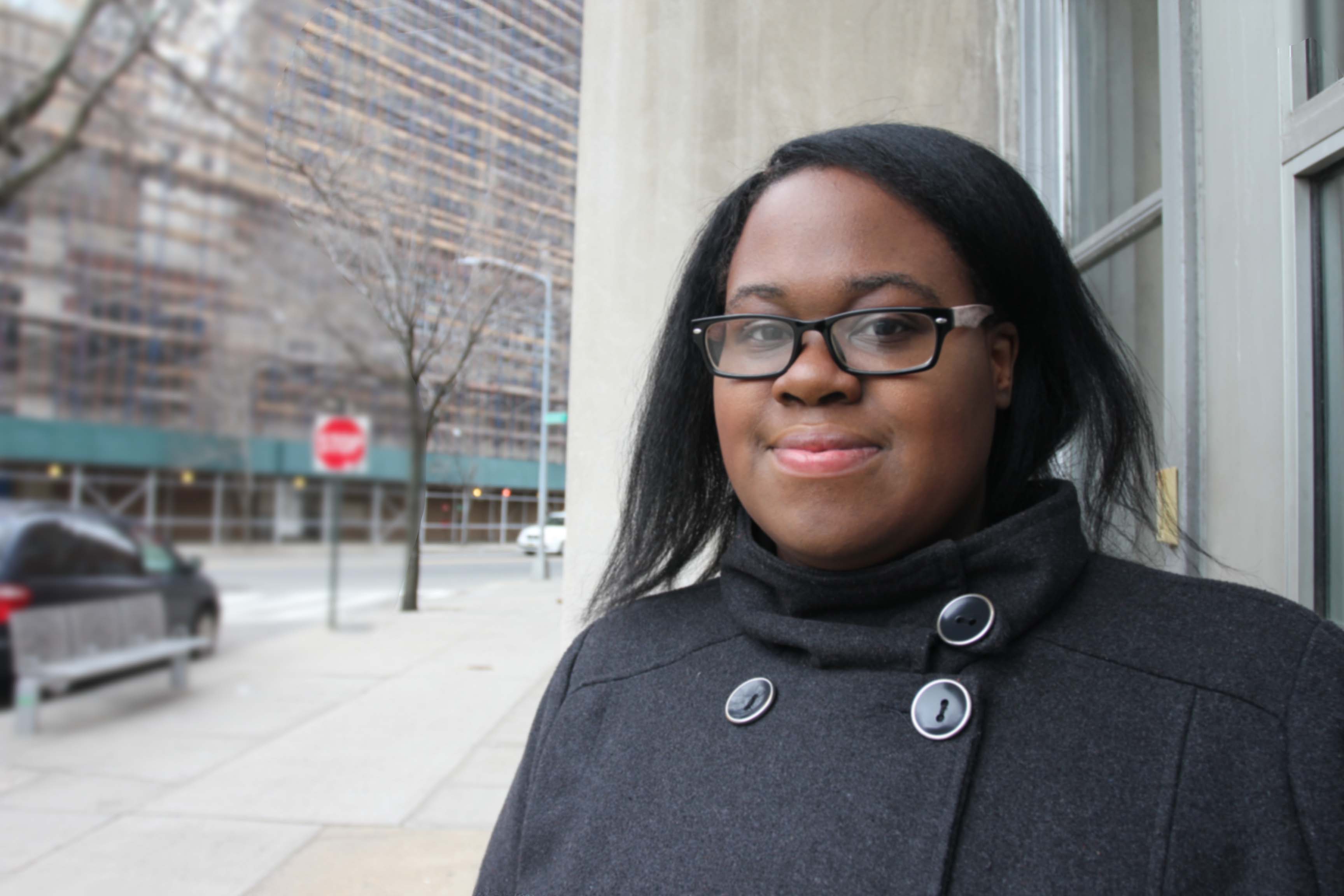This story is a part of Mixed Results for the City’s Last Chance High Schools , which focuses on the successes and failures of New York City transfer schools.
When Onyjie Edwards was little, she loved school. That is, she loved it until seventh grade when she was suspended from Manhattan’s M.S. 113 for calling her assistant principal a derogatory name. The school tried to deal with her outburst, but she was not in a position to listen.
From then on, Edwards has traveled from school to school, trying to find her footing. In the eighth grade, she entered Frederick Douglas Academy, a Manhattan college prep school for grades six through 12. She later transferred to M.S. 571, a small middle school in East Brooklyn that has since been phased out.
Her first high school – Victory Collegiate in South Brooklyn – was 90 minutes from home by bus and subway, causing her to rack up a long record of absences and tardiness. For her sophomore year, she enrolled in the Metropolitan Corporate Academy in downtown Brooklyn. After another year struggling to adjust, Edwards ended up in her first transfer school — Bedford-Stuyvesant Preparatory High School. After one year at Bed-Stuy, Edwards had collected only 26 out of the 44 school credits she needed to graduate.
Now, at age 19, she is a senior in her second transfer school – Aspirations Diploma Plus in East New York– where she is one Regents global history exam away from graduating. The school has a 23 percent pass rate for this particular exam, which is the lowest pass rate than any other subject area within Aspirations, according to the city’s Department of Education.
Jeremy Taffel, a history teacher at Aspirations for the last two years, said that the school’s teachers and administrators focus much of their time on helping students pass their Regents exams. Students must pass six Regents exams in order to attain a high school diploma and Edwards has passed five—English, math, science, U.S. history and a foreign language. The focus on test prep, Taffel said, narrows how much learning can be done in the school, but it’s necessary if students want to move on. “I want them to pass high school,” Taffel said. “I’m teaching to the test, not happily, but I am.”
Edwards has attempted to pass the exam three times throughout high school and is hoping this June she will be successful. “I don’t know what to study,” she said, because there are so many different possibilities. School administrators at Aspirations have broken down the test down into possible categories to help her focus.
Aspirations has allowed Edwards to finish her high school requirements at her own pace. “It would break my heart to pass my classes and not the Global History Regents exam,” she said.

For whatever reason, unlike in her past schools, Edwards has decided to get involved in Aspirations. She participated in the student council and the school leadership team—a collaboration between students, parents, teachers and administrators about school improvements. Edwards worked on a resume-building workshop for parents and students and on creating a yearbook committee. She also completed a paid internship within the school as a filing clerk.
Her GPA has gone up from a 3.2 to a 3.7 this year.
She hears her fellow students complaining about Aspirations. The school’s six-year graduation was only 30 percent last year, a 3 percent increase over the previous year.
But Edwards begs to differ. “I don’t know what it did for them, but it changed my life,” she said. Not only is she on track to graduate high school but is preparing for college as well. “I refuse to be an adult without a high school diploma.”
She has applied to various CUNY colleges including Hunter, John Jay, Borough of Manhattan Community College, La Guardia, Queensborough and Baruch.
“It’s not how you start the race,” said Edwards, saying she learned that from her mother. “It’s how you finish it.”



